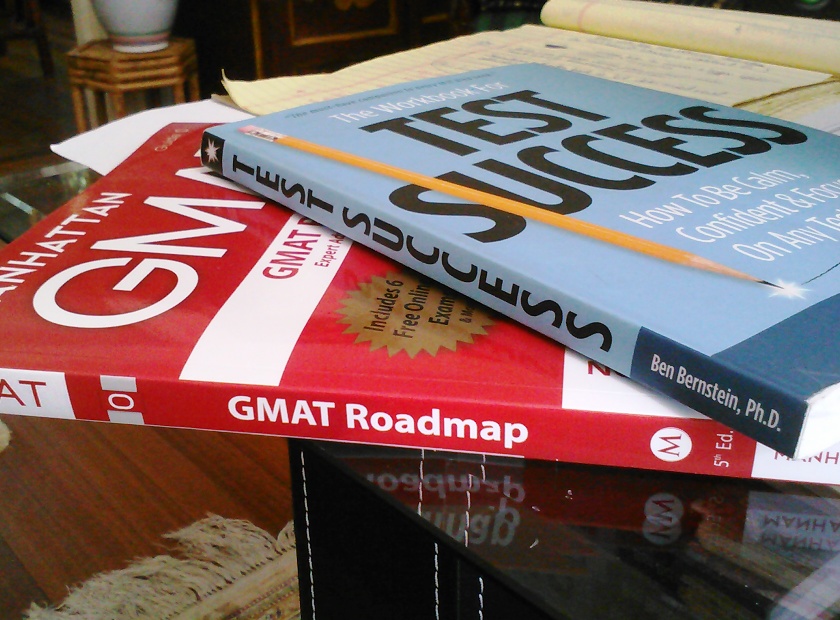
On Failure and the MBA Essays
 Α while ago, I entered a competition for the best MBA blog. In my day job, I am a graduate admissions consultant, so I thought I would try to get some attention to my blog through this contest. I didn’t win. I didn’t place. I didn’t even show.
Α while ago, I entered a competition for the best MBA blog. In my day job, I am a graduate admissions consultant, so I thought I would try to get some attention to my blog through this contest. I didn’t win. I didn’t place. I didn’t even show.
It wasn’t for lack of effort. I tapped all my social media friends and contacts as I looked for votes. But I didn’t get enough. It’s not the end of the world, but it never feels good not to win. This lack of success reminded me of my own rejections from college and graduate school. I was mirroring my students when they put their heart and soul into an application and are then turned down. This contest was small potatoes compared to a college or graduate school application.
Beautiful losers
But being a loser isn’t all that bad. I mean, it’s not the first time it happened, nor is it the last. We say to ourselves, “It’s not whether you win or lose, but how you play the game.” Well, sort of. I’m in good company with losers. The Atlanta Falcons, Hillary Clinton, and famously Michael Jordan on his beautifully watchable Nike ad.
Losing is part of learning about leadership. It builds resilience, propels you forward, and teaches humility. Here are a few ways how that works: Losing helps build resilience. It means being able to build muscle around not always getting your own way. One of the things that Harvard Business School looks for in prospective MBA students is the ability to handle things when they don’t work out. A few years ago, alongside the required accomplishment essays, the admissions committee asked applicants to describe three setbacks. Nowadays the HBS essay is more open ended, but if you don’t include some setback, they may think you are just trying to impress, and not tell the real story.
The F Word: Failure
That’s why admissions officers often say they are looking for both awareness and maturity. A key factor in high achievement is bouncing back from low points,” writes management guru Rosabeth Moss Kanter in Harvard Business Review’s “Failure Issue.” Losing means you’ve taken risks. You really cannot live without taking risks. As

Staff photo Jon Chase/Harvard News Office
J.K. Rowling told the Harvard graduating class of 2008, “It is impossible to live without failing at something, unless you live so cautiously that you might as well not have lived at all – in which case, you fail by default.“
Talk to most entrepreneurs, and you’ll hear the same theme: you cannot innovate without taking risks. And taking risks often means falling on your face. “Failure is not a badge of shame, it’s a rite of passage,” says Tony Hsieh, Zappo.com CEO and author of the inspirational book, Delivering Happiness.
Learning Humility
Humility is one of the not so obvious components of great leadership. The real leaders aren’t arrogant bombasts, but people who are gracious and, humble. Just ask Golden State Warriors coach Steve Kerr. Mike Krzyzewski, the winningest coach in NCAA men’s basketball, and the force behind Duke University’s Fuqua/Coach K Center on Leadership and Ethics, shows and teaches humility, in the face of great wins and embarrassing losses. Many leaders already have ego, and that’s ok, but, as Coach K writes in The Gold Standard, “Ego and humility are not mutually exclusive. You can have both. You should have both.”
When you think about it, losing does not always have to have a bad ending. Sometimes losing is simply a matter of the way you look at things. Sure, I didn’t win the best blog award, but when I went back and looked at the numbers, I came in fifth. That meant that I was in the “Top 5.” In my business, that is, the business of MBA admissions, the top five includes Harvard, Stanford, Wharton, Chicago, and Columbia. Not bad company, I think.
More on leadership and the MBA:
The Growth Mindset and the MBA Leadership Essays
How to Convey Authentic Leadership in MBA Essays and Interviews





